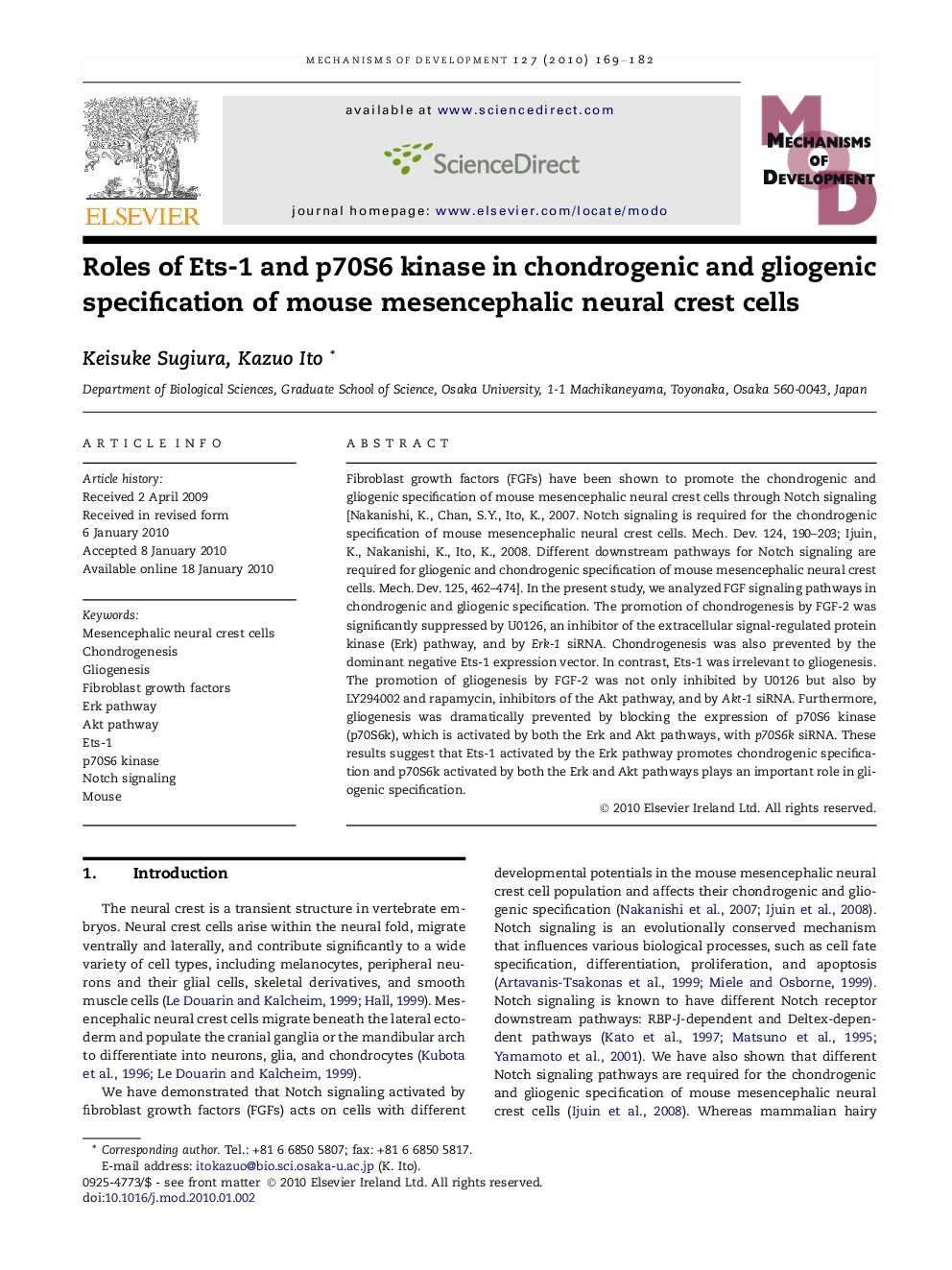| Article ID | Journal | Published Year | Pages | File Type |
|---|---|---|---|---|
| 2194728 | Mechanisms of Development | 2010 | 14 Pages |
Fibroblast growth factors (FGFs) have been shown to promote the chondrogenic and gliogenic specification of mouse mesencephalic neural crest cells through Notch signaling [Nakanishi, K., Chan, S.Y., Ito, K., 2007. Notch signaling is required for the chondrogenic specification of mouse mesencephalic neural crest cells. Mech. Dev. 124, 190–203; Ijuin, K., Nakanishi, K., Ito, K., 2008. Different downstream pathways for Notch signaling are required for gliogenic and chondrogenic specification of mouse mesencephalic neural crest cells. Mech. Dev. 125, 462–474]. In the present study, we analyzed FGF signaling pathways in chondrogenic and gliogenic specification. The promotion of chondrogenesis by FGF-2 was significantly suppressed by U0126, an inhibitor of the extracellular signal-regulated protein kinase (Erk) pathway, and by Erk-1 siRNA. Chondrogenesis was also prevented by the dominant negative Ets-1 expression vector. In contrast, Ets-1 was irrelevant to gliogenesis. The promotion of gliogenesis by FGF-2 was not only inhibited by U0126 but also by LY294002 and rapamycin, inhibitors of the Akt pathway, and by Akt-1 siRNA. Furthermore, gliogenesis was dramatically prevented by blocking the expression of p70S6 kinase (p70S6k), which is activated by both the Erk and Akt pathways, with p70S6k siRNA. These results suggest that Ets-1 activated by the Erk pathway promotes chondrogenic specification and p70S6k activated by both the Erk and Akt pathways plays an important role in gliogenic specification.
